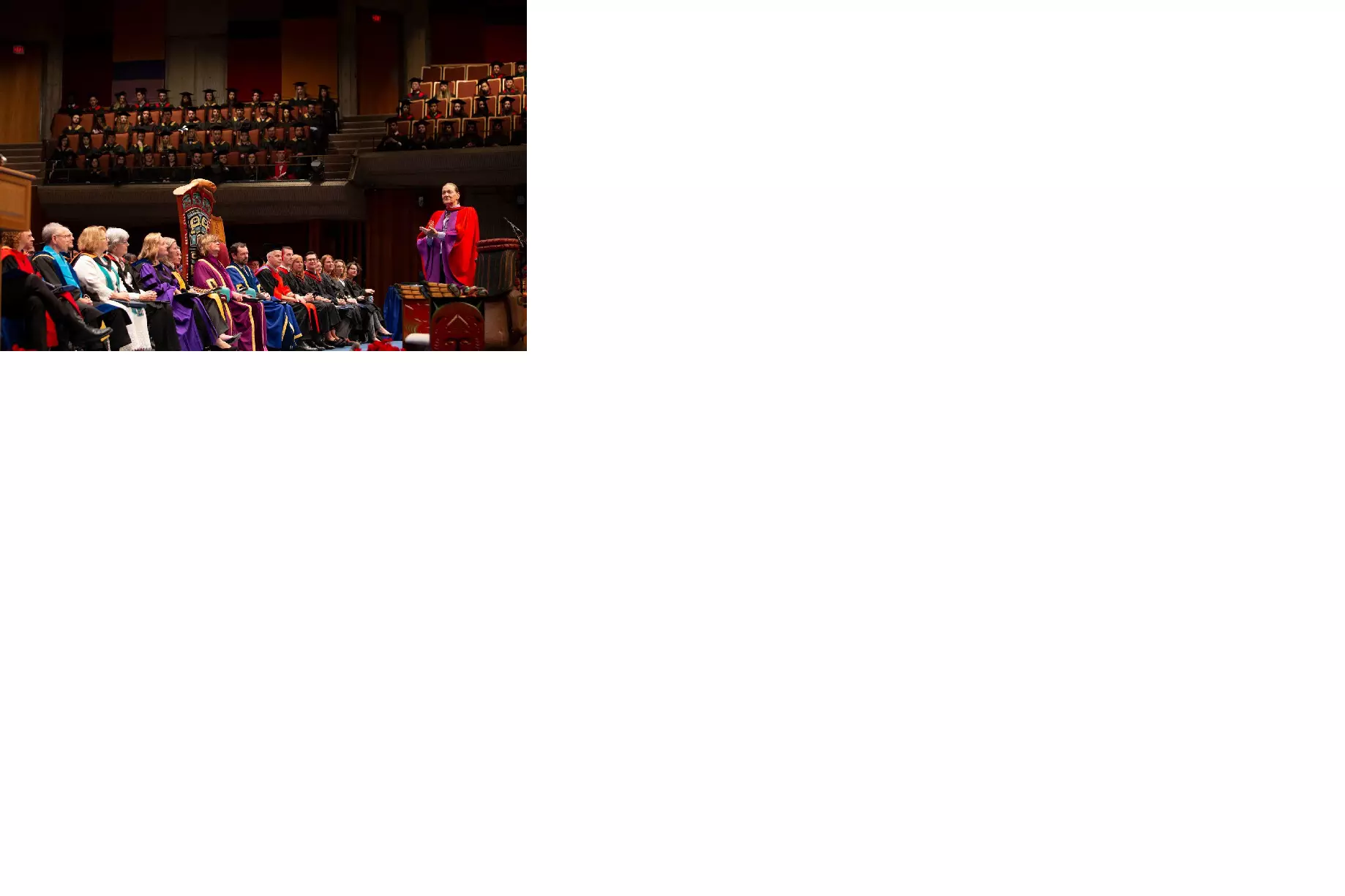About University of Victoria
The University of Victoria was established in 1903 but received its University status in 1963. It is located in Victoria, British Columbia, on the edge of Canada's spectacular west coast and serves as a gateway to the Pacific Rim. The University of Victoria has a moderate acceptance rate of 63%.
The University of Victoria is known for its global connections. Its faculty, staff, and students collaborate with over 300 institutions in 70 countries. The university offers degree programmes to more than 22,000 students, with 5,000 employees, including 900 full-time faculty members.
The University of Victoria welcomes international students from countries worldwide. Overseas students account for more than 21% of UVic students. For admission, they are required to take at least one English proficiency examinations such as IELTS, Michigan English Test, TOEFL and CAEL along with a high GPA.
The University of Victoria is consistently the top university in North America for international research collaboration (Leiden, 2011-2023). Top courses at UVic include Bachelor of Science [B.S] Computer Science, Bachelor of Engineering [B.E. / B.Tech], Master of Science [M. S] Computer Science, Master of Business Administration [M.B.A], Master of Law [L.L.M] are among the top courses offered at University of Victoria.
The University of Victoria is one of the top universities in Canada. It is consistently ranked among the top universities globally for published research based on international collaboration. The university is also home to the world-leading Ocean Networks Canada, Pacific Institute for Climate Solutions, Institute for Integrated Energy Systems, and the world's only combined Indigenous law program within the institution.
UVic takes pride in its culture of invention, exploration, and creativity. Students at UVic have access to a wide range of cultural attractions, including international film, music, and art festivals, as well as popular outdoor activities including hiking, sailing, skiing, and kayaking. The University of Victoria is ranked 5th in Canada and 220th worldwide on the basis of research impact across all fields.
Read more: Benefits of Studying in Canada
Latest deadline at the University of Victoria
The University of Victoria has released the application deadline for regular admission to the university.
Application deadline: For September 2024 intake, UVic has started its applications on September 1, 2023, and interested candidates can apply by February 1, 2024 for all programmes offered at the university.
University of Victoria Highlights
University of Victoria Ranking and Stats
The University of Victoria is ranked 322nd globally by QS World University Rankings 2024. It has also been rated at 351-400th rank by The Times Higher Education 2024 and 301-400th by ARWU 2023. UVic is 324th globally according to the US World University Rankings 2022-2023. UVic is ranked highly in Canada, according to Maclean's magazine's 2023 Canadian university rankings, it is the 1st in Canada for promoting Indigenous visibility and 1st among comprehensive universities in medical/science grants per faculty.
UVic is also ranked 4th among all Canadian universities in citation impact per faculty member. In addition to its overall rankings, UVic is also ranked highly in a number of specific subjects, including 1st in Canada for mathematics and computer science (50th globally), 4th in Canada for research in physical sciences and engineering, and 5th in Canada and 220 globally for research impact across all sciences.
Parametric Score and Ranking 2024
| Domain | Year | Score | Rank | Rank Band |
|---|---|---|---|---|
| Overall | 2024 | NA | NA | 49.1-51.0 |
University of Victoria Courses
The University of Victoria offers a wide range of courses in a variety of disciplines including Business, Education, Engineering and Computer Science, Fine Arts, Human and Social Development, Humanities, Law, Science, Social Sciences, and Graduate Studies. Bachelor of Science [B.S] Computer Science, Bachelor of Engineering [B.E. / B.Tech], Master of Science [M. S] Computer Science, Master of Business Administration [M.B.A], Master of Law [L.L.M] are a few of the most popular courses at University of Victoria. Some diploma and certificate courses are also offered at the undergraduate level at UVic.
Accreditations
University of Victoria Fees
University of Victoria Cost Of Living
The University of Victoria tuition fees vary depending on your programme of study, your residency status (domestic or international), and your study load. The average yearly tuition fee for overseas undergraduate students is INR 11,68,614 (18,816 CAD).
Tuition fees for graduate students vary depending on the programme. The Master of Engineering in Telecommunications programme, for example, has an annual tuition price of INR 17,47,146 (28,131 CAD), while the Master of Arts in English programme has an annual tuition charge of INR 3,62,335 (5,384 CAD).
Other charges paid by students, in addition to tuition, are listed below:
The student society cost is INR 9,191 (148 CAD).
Athletics at UVic: INR 11,676 (188 CAD).
UVSS bus pass costs INR 10,061 (162 CAD).
Co-op programme fee: INR 93,782 (1,510 CAD) (for degrees with optional co-op).
Is it expensive to study at the University of Victoria?
The cost of living in Victoria, British Columbia, where the University of Victoria is located, is higher than the average living expenses in Canada. It is, however, less expensive than living in other large Canadian cities, such as Toronto and Vancouver. Overall, the cost of living in Canada for students is between INR 62,107 - INR 93,161 (1,000 CAD - 1,500 CAD) per month. Actual costs, however, will vary based on the individual's lifestyle and spending habits.
University of Victoria Living Expenses
Here is a breakdown of some of the main costs of living in Victoria:
Expenses | Costs |
Accommodation | 8,000 CAD - 14,000 CAD |
Food | 300 CAD - 400 CAD |
Transport | 100 CAD - 200 CAD |
Others (personal, entertainment, books) | 300 CAD - 400 CAD |
University of Victoria Admission and Application
University of Victoria acceptance rate is approximately 63%, which shows that the university is moderately selective, and many students are admitted to the university every year. Candidates seeking admission to the University of Victoria must apply using the EducationPlannerBC application service before the deadline for the specified programme. Before applying for graduate programmes, students must find a supervisor.
How to apply to the University of Victoria?
Students looking for admission to undergraduate and postgraduate programmes at the University of Victoria should apply by following the steps mentioned below:
Visit the official website of the University of Victoria.
Choose a program of your choice.
Applicants must apply through EducationPlannerBC.
Submit the application with relevant information.
Candidates will receive a confirmation email that includes their UVic student number.
They will receive an introductory email from the UVic admission assistant, who can help them through the application process.
Lastly, all applicants need to submit their documents to evaluate their application.
Application fees for the University of Victoria
All candidates are required to submit the application fee along with the application form for their chosen course. The application fee according to the programme is listed below:
Programme | Application fee |
Undergraduate application within Canada | INR 5,232.56 (84.25 CAD) |
Undergraduate application outside Canada | INR 9,750.88 (157.00 CAD) |
Graduate application within Canada | INR 8,508.73 (137.00 CAD) |
Graduate application outside Canada | INR 10,868.81 (175.00 CAD) |
Application deadline for the University of Victoria - Applications for September 2024 intake has started on September 1, 2023, and it will be accepted by February 1, 2024 for all programmes offered at UVic.
Documents required for University of Victoria Admissions
High school score certificate
English Proficiency Certificate (IELTS/ TOEFL Scores)
a copy of your CV/resume
any other individual program requirements
University of Victoria Scholarship
The University of Victoria provides various scholarships to both local and overseas undergraduate and graduate students. Some of these scholarships are awarded on the basis of academic achievement, while others are awarded on the basis of financial need, extracurricular activities, or additional factors. Among the scholarships provided by the university are:
Entrance scholarships are given to freshmen depending on their academic performance and other factors. The President's Scholarship, the Chancellor's Scholarship, and the UVic Admission Scholarship are a few instances of admission scholarships.
In-course scholarships are given to current students based on their academic performance, extracurricular activity, or other factors. The Dean's List Scholarship, the UVic Alumni Association Scholarship, and the UVic Indigenous Student Scholarship are some examples of in-course scholarships.
External scholarships are provided by organizations other than the University of Victoria. Scholarships in Canada can be found on the UVic website or on the websites of scholarship organizations.
University of Victoria Eligibility
Candidates applying for admission to the University of Victoria must have the following eligibility criteria:
Admission to undergraduate programme - Students must submit their high school transcript or a diploma degree certificate or equivalent from a recognized educational institution.
Admission to a master’s programme
Applicants must have a completion certificate for a four-year bachelor's degree or equivalent from a UVic-accredited university.
They must have earned a minimum "B" average in the last two years of their degree.
Any prerequisites for the programme of study
Admission to a doctoral programme
Applicants must hold a completion certificate for an approved master's degree or equivalent from a UVic-accredited institution.
They should have earned an A - in the last two years of a bachelor's degree.
Programme specific requirements.
English language requirements
Candidates applying to the University of Victoria must meet the English language requirements for their selected course if English is not their first language. A detailed table for required scores is mentioned below.
University of Victoria English Proficiency Scores
Test | Minimum score |
CAEL | 70, with no section less than 60 |
IELTS (Academic) | 6.5, with no component less than 6.0 |
Michigan English Test | 64 |
TOEFL iBT (Internet-based test) PBT (paper-based test)* | 90, with no section less than 20 575 |
University of Victoria Campus Facilities

Classrooms
In order to meet the expectations of its students and teachers, UVic provides a wide variety of classrooms. The sizes of classrooms vary from small seminar rooms to huge lecture halls. Classrooms are furnished with interactive whiteboards and other technology that helps instructors deliver engaging lectures and presentations.
Wifi
On campus, the University of Victoria provides Wi-Fi connectivity to its students, teachers, and employees. All academic buildings, libraries, and student services facilities, including the student union building and food court, have access to the UVic Wi-Fi network.
Library
The University of Victoria contains two libraries: the McPherson Library and the Mearns Centre for Learning. Students can access books, journals, and other materials at the library.
Laboratories
UVic laboratories are outfitted with cutting-edge scientific equipment for science courses such as chemistry, biology, and physics. It also has computer laboratories for computer science courses.

Alumni Associations

Swimming Pool
Gym
Sports
The University of Victoria has several sporting facilities, including a gymnasium, swimming pool, and track. Students can use these facilities for entertainment and competitive purposes.

Parking Facility
Extra Curricular Activities
The university has numerous performing arts facilities, including a theatre, concert hall, and art gallery which are used for events, performances, and exhibitions.
Auditorium
Cafeteria
I.T Infrastructure
Medical/Hospital
UVic Hospital offers medical services, including emergency care, inpatient care, outpatient care, and diagnostic services. There is also a health and wellness centre for UVic students to provide primary care, counselling, and sexual health services.
University of Victoria International Office Details
University of Victoria is a highly-ranked university with a strong reputation for excellence. It is a good choice for students who are interested in studying in Canada. The University of Victoria has more than 22,020 undergraduate and graduate students, among which there are 21% international students. All overseas students looking for admission to the University of Victoria can contact it on the following details:
Address: University of Victoria, 3800 Finnerty Road, Victoria, BC V8P 5C2, Canada
Phone: 250-721-8121 / 250-472-4657
Email: garo@uvic.ca
Fax: 1-250-721-7212
Is it hard to get into the University of Victoria?
The University of Victoria acceptance rate is 63% which shows that out of every 100 candidates, 63 of them gets accepted into the university, indicating that UVic is a moderately selected university. Candidates must have a strong application with work experience, letters of recommendation and statement of purpose to be considered for admission to the University of Victoria.
University of Victoria Gallery
Gallery












